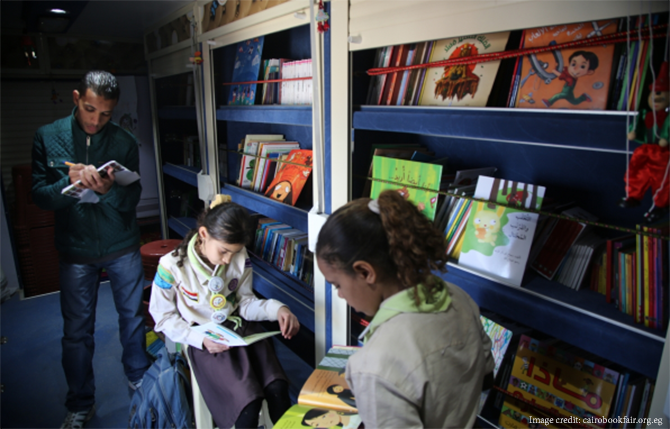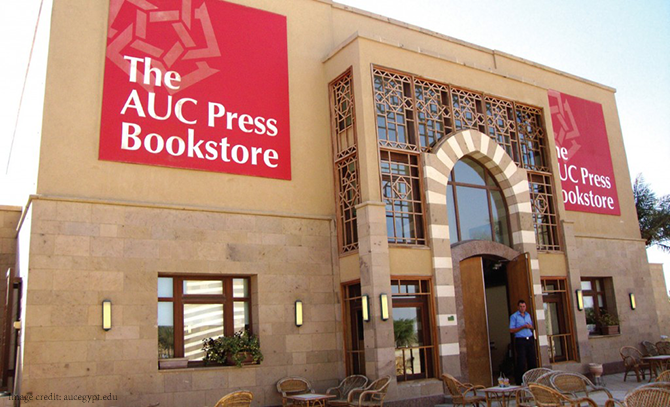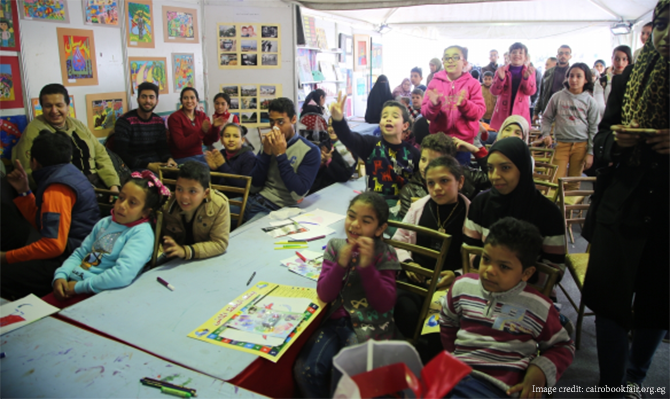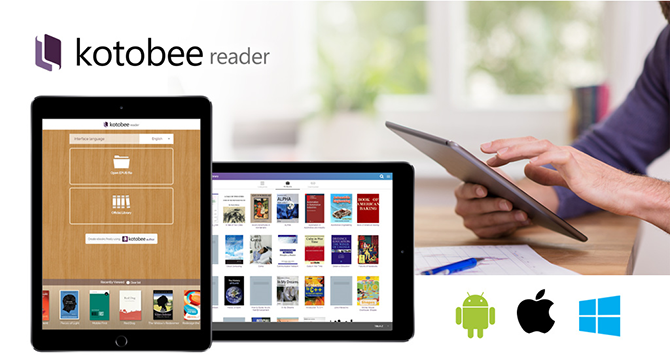Publishing in the Middle East: A turning point?
Crowds have been swarming like bees to a hive at the Arab world’s oldest book fair in Cairo this month. With access to just about every single book under the sun in one place, the Cairo International Book Fair has earned its well-deserved reputation for being a one-stop bookshop for readers and publishing houses alike.

This year’s event, however, has also highlighted a growing concern for Egyptian publishing houses: how to bridge the cross over between printed books to ebooks workable. It’s hardly a new debate, with several mobile apps created in the past 10 years that support Arabic-language reading.
Several recent factors have contributed to the increase in the costs of printed book production in the local market, including:
- The recent floating of the Egyptian pound that has decreased its value by as much as 50%;
- A long-running deficit in available foreign currency inside the country that doesn’t look set to ease soon;
- And the fact that much of the paper and ink used in book publishing comes from outside the country, adding further to costs.
This, in turn, has affected the end-costs of books that directly affect what customers pay. In some cases, this has almost doubled the price of books. It explains why, in looking through the stalls at this year’s book fair, there are noticeably fewer discounts on books than at last year’s event. There are also 100 fewer Egyptian publishers present at the 2017 edition compared to 2016 – which speaks volumes, even if there are still plenty of customers attending.

As Fadwa Al-Boustany, of Cairo-based Boustany’s Publishing House, says, “The rise in production costs has affected me 100%, and it has also affected other Egyptian publishers. I have, for example, 25 books I want to print, and I have already paid for the authors, the illustrators, everything, but I am unable to print, because the paper and inks are imported, and the price of everything has more than doubled.”
It is a point also raised by Sameh El Moghazy, Assistant Sales Manager at the AUC Press, who added, “Production costs have risen a lot. We find that our books sell for more on foreign websites, whereas books sold in Egypt, for instance at the book fair, are still quite cheap.” The price difference can be as much as LE1,000.

So how can Egyptian publishers buck the system? Given that ebooks generally tend to be cheaper than their printed versions, this would be the easiest solution to the problem. As mobile phones are hugely popular in the Middle East, and e-readers are starting to gain ground, it would also encourage greater readership.
As Al-Boustany notes, “Digital publishing will become a popular choice in the Middle East in the future, because production of [print] books has become very expensive, especially lately, as the rate of the Egyptian pound vis-a-vis the foreign currency has risen.”
Publishers may talk the talk, that there is the potential for ebooks and digital publishing to take off in the Middle East. But there is little evidence of walking the walk, as ebooks remain a relatively new concept in the Middle East. Egypt, in particular, is yet to achieve a real alternative to a potential future shortfall in print book sales if prices rise further.

Regional publishers also seem to be slow in taking the bait to develop e-readers that support Arabic font and making them widely available. Despite there being many mobile apps available that support Arabic fonts, and which can often be downloaded for free (including our own Kotobee Reader), more mainstream books are not widely available.
The one notable exception to this lack of digital books is the AUC Press, which has made substantial inroads, in comparison to other local publishers. Even then, however, book sales are higher coming from outside buyers at the moment.
“Currently, we have more outside buyers for our ebooks, but digital publishing is the future, so we are likely to see an increase in local buyers of digital versions,” the AUC Press’ El Moghazy added.
A 2015 “Publishing Perspectives” article highlighted that several Middle Eastern countries, of which Egypt is one, have implemented e-learning in schools. This has seen tablets introduced into some classrooms, allowing students interactive learning. But Arabic text is still problematic in converting into digital format. There are few programs to support the script – hence Arabic books are frequently translated into other languages before seeing digital format.
Few publishers appear ready to take the risk of developing e-readers to make digital books more available. And despite there being plenty of mobile apps for Arabic books available for smartphones, the high expense of smartphones make these options less affordable for the average Egyptian.
“There aren’t many ebook readers available in the Middle East, so there are few sales of digital ebooks, but if there are more, Al Balsam would definitely think about creating more ebooks,” Mohammed Essam of Al Balsam Publishing House says. Needless to say, we introduced Kotobee Reader to them and we’re waiting to see if it meets their needs, and how we can develop our Arabic-supporting ebook reader further.
Despite the potential for digital children’s books, particularly interactive ones, Al Balsam is yet to take the digital plunge. Essam notes, “We haven’t decided to go into this area, simply because there’s no demand for ebooks yet.”
El Moghazy adds, “Ebook technology is a new thing in Egypt, and we still need to have more efforts in this area to encourage people to buy them.”
He also notes that, “there will always be those readers, however, who want to have the feel of the printed book in their hands – it just depends on their perspective.”
Although Al-Boustany added that her publishing house has recently signed several agreements as a first foray into the epublishing sector, it does, however, come with certain negative sides.
“There should be more in terms of digital books, including interactive ebooks for children, but, sadly to say it, I don’t think people are ready to purchase even if it’s just for $1, to that extent,” Al-Boustany notes, “And most books are already pirated on the web, which is a shame, but it’s a fact. We have a problem – I pay so much in royalties and in production costs and I see my books scanned on the internet. It’s unbelievable – and there is no protection whatsoever.”
To know more about ebook security, read:
Ebook DRM & Security: What is it and How it Works
With piracy a problem and virtually no protection available for publishers who lose money on lost revenues, Al-Boustany notes that publishers and the government need to work hand-in-hand. There need to be new regulations and better checks on what’s going on online, to reduce the financial battering publishers receive.
Al-Boustany also argues, “Education, reading habits, making reading a daily habit, culture, all of these factors have not been on the agenda of our rulers for the past 60 years, unfortunately. It should be on top of their agenda, but they deliberately neglected these. So when it comes to making reading a daily habit, of course it was the least of concerns.”

It seems the debate on the viability of digital publishing will continue for a good while yet. Much work is still needed to ensure that the Middle East isn’t left behind, given its rich history of literature.
You might also like:
21+ Awesome Tips for Successful Ebook Marketing [Infographic]
The Basic Guide to Self-Publishing Books
















